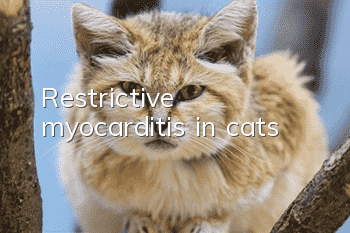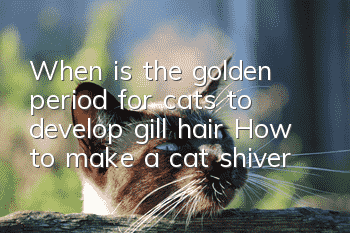Restrictive myocarditis in cats

Causes of restrictive myocarditis in cats:
Restrictive cardiomyopathy in cats is characterized by diffuse proliferation and thickening of endocardial elastic fibers, and inhibits A chronic cardiomyopathy based on normal cardiac contraction and relaxation. Common symptoms of restrictive myocarditis in cats. Cats suffering from restrictive myocarditis are mainly due to family hereditary tendencies, and most of them often show clinical symptoms in adulthood. The average age of onset of restrictive myocarditis in cats is 6-8 years old. Once a cat suffers from restrictive myocarditis, signs of heart failure such as dyspnea, conjunctival cyanosis, pulmonary congestion, pulmonary edema, and pleural and abdominal effusion will appear.
Treatment methods for restrictive myocarditis in cats:
1. It is not advisable to use cardiotonic drugs in the early stages of the disease to avoid overexcitation of the myocardium leading to heart failure. Cold compresses can be used. When the disease reaches an advanced stage and myocardial contractile function decreases, 20% sodium caffeine injection should be injected intradermally, with a dose of 0.5~1.0ml. In particular, it should be noted that digitalis preparations are a prohibited drug because they can increase myocardial excitability, delay conductivity, prolong myocardial diastole, and can induce heart failure and even death.
2. Based on the condition of heart failure, use diuretics and drugs that improve myocardial nutrition, such as glucose, ATP, etc.
- How to best treat feline pancreatitis
- Is it okay to neuter a cat without removing the uterus?
- Treatment of atopic dermatitis in cats
- German curly cat care knowledge
- What to do if a blue cat is in heat
- Miao Sanduo is 21 days or 28 days apart
- What to do about chronic renal failure in cats
- What should I do if my cat has no trauma and suddenly becomes lame?
- Is it okay if I was scratched by a cat and vaccinated?
- What does it mean for a cat to be jealous?



